Whispers in the Sound of Silence
A sermon preached at St. John's Episcopal Church, Ross, CA on June 22, 2025
Hear the Gospel according to Paul Simon – sing along if you know it.
And the people bowed and prayed
To the neon god they made
And the sign flashed out its warning
In the words that it was forming
And the sign said, “The words of the prophets
Are written on the subway walls
And tenement halls
And whispered in the sounds of silence.
Now there was a great wind, so strong that it was splitting mountains and breaking rocks in pieces before the Lord, but the Lord was not in the wind; and after the wind an earthquake, but the Lord was not in the earthquake; and after the earthquake a fire, but the Lord was not in the fire; and after the fire a sound of sheer silence. When Elijah heard it, he wrapped his face in his mantle and went out and stood at the entrance of the cave. Then there came a voice to him that said, "What are you doing here, Elijah?"
+
We hear the noise.
We hear so much noise.
We hear too much noise.
But do we hear the silence?
I have lost count of the number of people who have told me that they cannot listen to or watch or read the news anymore. Maybe you are one of them.
Maybe after last night you are thinking about becoming one of them.
Now let me be clear, these are not apathetic people.
These are caring people.
Empathetic, loving people.
And I don’t blame them for tuning out. I get it.
Because the news today does not easily lend itself not only to caring, empathy and love ... on most days it doesn’t easily lend itself to making sense.
And then there’s days like today, with news of our unprovoked military attack against Iran, once again falling in line behind an Israeli government that is already engaging in genocide in Gaza, the news today fills me with deep sadness and anger and despair about what I can even do.
Days like today are hard. We are tired. And part of me wants to just turn it all off and make it go away.
And that’s today, a particularly hard day. But frankly, on most days, even on the best of days, the news just feels like noise.
Noise sold to us by advertisers on television.
Noise curated for us by corporate algorithms through social media.
Noise created for us by bots trained to use our caring, empathy and love against us
…to use the best parts of ourselves to trap us in cocoons of self-righteousness
…to sap energy that might be used for revolutionary healing into black holes of hate and hopelessness.
We hear the noise.
We hear so much noise.
We hear too much noise.
But do we hear the silence?
I have to admit, I was about to tune out myself when I read a book called The Myth of Normal by Daniel and Gabor Maté. The authors describe a practice of only ingesting news twice a day and … this is the key … taking five minutes of silence before and five minutes of silence after.
There is something about the silence.
Taking five minutes of silence before reading the news put me in a heightened state of receptivity and discernment.
But it’s the silence after that has been even more transformational.
The silence after is a guard against my own reactivity, inviting me to reflect on what I can do with what I’ve read. What invites prayer, action or just release.
And yet it’s more than that.
Because as I have begun this practice of entering into silence after the noise, I have begun to hear the voices that are drowned out by the noise.
The voices that are conspicuous by their absence … that I wouldn’t hear if I just turned the noise off … but that if I listen closely, I can hear in the silence as the echoes of the noise fade away.
It is the sound of silence.
The sound of silence of which Simon and Garfunkel sing.
The sound of silence through which God summoned Elijah.
The sound of silence I believe God is calling us into and through today.
I love this morning’s story from first Kings … mostly because in a world where there is so much wind, earthquakes and fire, I crave a God who invites me into a sound of sheer silence.
Elijah was a prophet - someone who calls out those in power for their abuse of power and lets them know that it’s really not going to end well for them if they keep going.
Now two things about prophets.
The first is that usually the person a prophet’s story doesn’t end well for actually is the prophet. Because in the short term, the power of the state is pretty fearful and intense – and often gets its way.
Whether it’s John the Baptist or Jeremiah or Oscar Romero or Harvey Milk … it didn’t end well.
The second thing about prophets is that I don’t know one of them who applied for the job. Like many calls, the call to be a prophet manifests itself kind of like a toothache that won’t go away so you finally have to do something about it
Put together, it’s kind of like that old Far Side cartoon where two deer are standing talking to each other. One of them has a giant target on his chest and the other one is saying to him:
“Bummer of a birthmark, Hal.”
That was Elijah. Just an ordinary guy whom God called to speak truth to power. And when he did, that’s when the trouble started.
Elijah had gone to King Ahab and told him he needed to stop worshipping a false God. Then Ahab told his wife, Jezebel, how he had killed all the prophets with the sword and Jezebel texts Elijah and says, “you’re next lol” … so Elijah heads for the hills … literally.
And that’s where we hear the part of the passage I love.
It’s just poetry.
Now there was a great wind … but the Lord was not in the wind; and after the wind an earthquake, but the Lord was not in the earthquake; and after the earthquake a fire, but the Lord was not in the fire; and after the fire a sound of sheer silence. …. Then there came a voice to him that said, "What are you doing here, Elijah?"
Where is God?
God is not in the noise.
God is in the silence.
Elie Wiesel wrote about a child in Auschwitz witnessing the hanging of another child and all the prisoners were forced to march past him and look at him as he died. He writes:
Behind me, I heard a man asking:
“For God’s sake, where is God?”
And from within me, I heard a voice answer:
“Where is God? This is where – hanging here from this gallows…”
Where is God?
God is in the rubble after the airstrike in Gaza.
Where is God?
God is in the bedroom of the Muslim child in this country crying because she is scared of the abuse she will endure if we enter into a full-scale war in the Arab world. Because that’s what’s happened before.
Where is God?
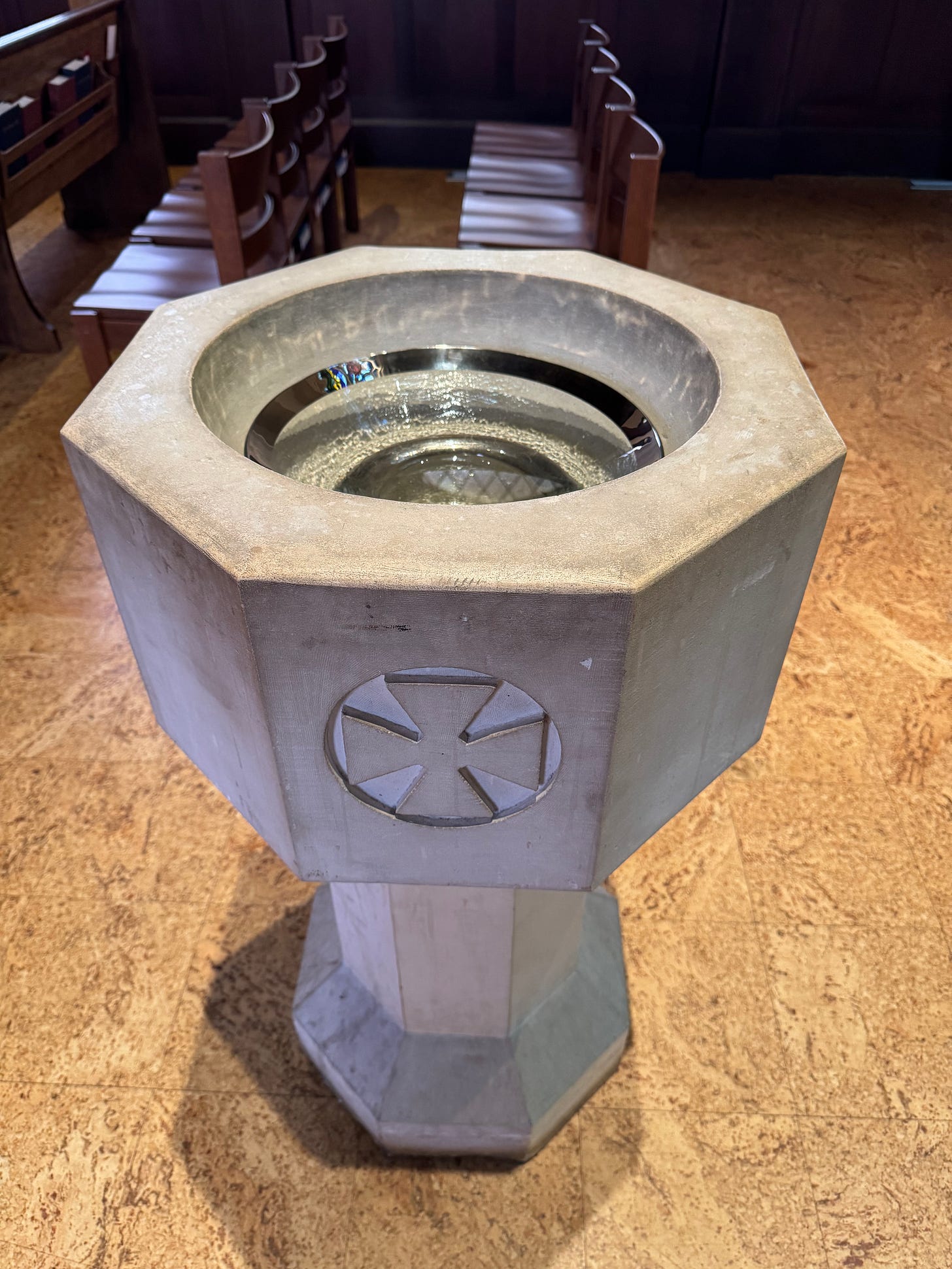
God was with me after the 8 o’clock service this very morning when I stopped at the back of the church and realized I was standing at the very font where my mother was baptized nearly 90 years ago, and I felt how much I still miss her even nearly five years after her death.
God is in the silence.
God will always be in the silence.
Yes, there are voices in the silence. Voices we can only hear in the silence because in the wind, the fire, the earthquake … there is too much noise to hear them.
People sometimes talk about being a voice for the voiceless but that’s never true. Everyone has a voice … it’s just that way too often those voices get suppressed and shouted down.
When Paul Simon wrote the Sound of Silence, he was in his early 20s, and he was writing about what it felt like as a young person in the 1960s to feel unheard.
And I love the words he chose in that final verse:
And the words of the prophets
are written on the subway walls
and tenement halls,
and whispered
in the sounds of silence.
There are no voiceless people … just people whose voices are suppressed and shouted down. And yet many as the song sings and Banksy writes,
“Speak softly, but carry a big can of paint.”
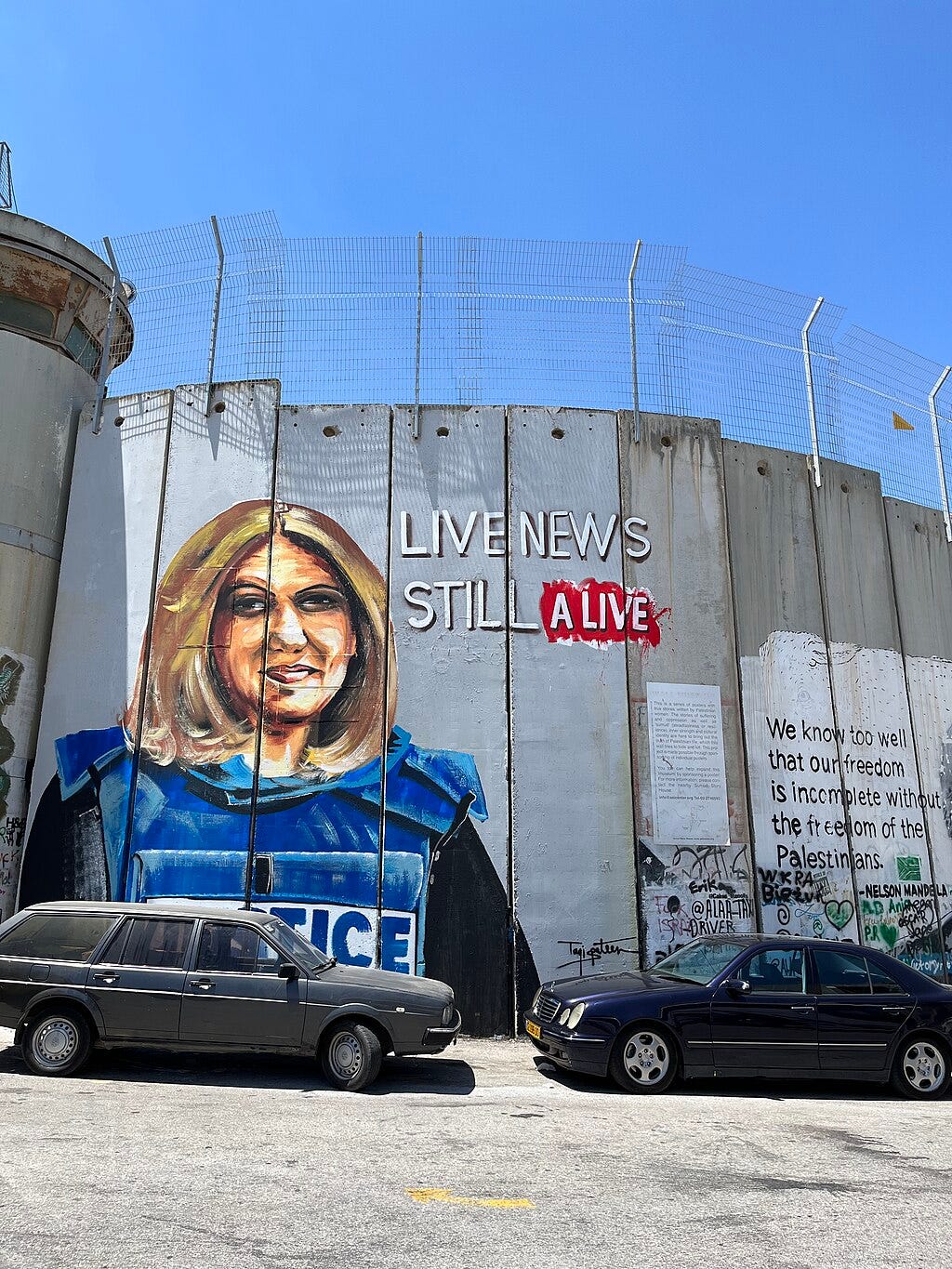
The words of the prophets is the graffiti on the Apartheid Wall in the West Bank commemorating those who have died and their hopes for the future.
The words of the prophets is the AIDS mural at 16th and Market in the Castro reminding us of our pain and that love is more powerful than death..
The words of the prophets is the wall in Oakland full of names of black images of God murdered by police with “Say Their Names” plastered over it proclaiming that you can kill our black and brown siblings but you cannot take away who they were, are, and will always be.
The words of the prophets are written on the subway walls and tenement halls … and whispered in the sounds of silence.
The noise cannot shout out or shut down the voices in the sound of sheer silence. Because that is where God is.
And yes, just like Moses had to shield his face from the presence of God, the voices that are in the sound of silence can be hard to bear.
What you did not see on CNN today is that Iran is a beautiful country with a deep and rich history and culture and amazingly gifted artists.
I want to introduce you to one of them. And she has something to say about silence.
Kamand Kojouri, a Tehran-born Iranian poet says, “Yes, silence is painful, but if you endure it, you will hear the cadence of the entire universe.”
Let me say that again:
“Yes, silence is painful, but if you endure it, you will hear the cadence of the entire universe.”
And then she sings this beautiful poem
“Let my silence grow with noise
as pregnant mothers grow with life.
Let my silence permeate these walls
as sunlight permeates a home.
Let the silence rise from unwatered graves
and craters left by bombs.
Let the silence rise from empty bellies
and surge from broken hearts.
The silence of the hidden and forgotten.
The silence of the abused and tortured.
The silence of the persecuted and imprisoned.
The silence of the hanged and massacred.
Loud as all the sounds can be,
let my silence be loud
so the hungry may eat my words
and the poor may wear my words.
Loud as all the sounds can be,
let my silence be loud
so I may resurrect the dead
and give voice to the oppressed.
My silence speaks.” 1
Silence speaks.
And just as with Elijah, the voice in the silence asks a question:
“What are you doing here?”
You see, unlike the noise, which can tempt us to hopelessness because of its vastness or even paralyze us like a sound cannon, silence invites us … terrifyingly so, at times … not only to listen but to respond.
Because the voices we hear in the silence are not just noise … they are the heavenly chorus of the eucharist … angels, archangels, all the company of heaven on the lips of those among us who are most endangered and most in fear.
Sometimes they are voices apart from us who need us deeply, and sometimes the voices in the sound of sheer silence come from deep in our hearts … whispering the own loves, needs and wounds which we anesthetize with the noise and of which we too often dare not speak – even to ourselves.
God is in the silence.
And God asks:
“What are you doing here?”
And that is the question. A question that strikes right to our hearts with the double-edges of trepidation and liberation.
And in the silence, we are laid bare to consider the answer.
For Elijah, that meant a journey. It meant going to the wilderness of Damascus to find a new leader for the people of Israel … a leader who would lead from a place of love and justice.
Imagine that.
Elijah didn’t want to go. Elijah was hiding because he was scared for his life. He was tired and he’d had enough. And God doesn’t chastise or shame him … God just gently, like my dog when I’m lying on the couch when it’s time for her walk, nuzzles his hand and says:
“Ahem … what are you doing here, Elijah.”
And in that moment, Elijah has one of what I like to call one of those “oh crap” moments, where he knows what he needs to do, like it or not. Not even knowing exactly what he has to do, just that he’s got to get off the couch, out of his cave of safety.
He knows he has to, and he is tired … and he is frightened … and maybe he just wishes he could stay in his cave.
And he knows that he has to because nothing else will set him free.
I heard the news today, oh boy.
And in the silence that follows the bombs, as I stand at entrance to my cave of safety, I hear the voice.
What are you doing here, Mike?
What are you doing here, Church?
The voices in the sound of silence convict and liberate us.
They give our lives meaning even as they can fill us with fear of the loss that can and truly most assuredly will follow when we step out of that cave.
And, the voices in the sound of silence are not a private concert.
We hear them together. That is why we gather here, week after week.
Because we are, as my former parishioner, Jim White, likes to say “not just the United Way with better music.”
We are followers of the revolutionary Jesus, who eight hundred years after Elijah, heard God’s call in the sound of sheer silence in the wilderness and showed us how to lay down our lives for one another that we all might be free.
We are not alone in the wind.
We are not alone in the earthquake.
We are not alone in the fire.
And we are not alone in the sound of sheer silence.
And the words of the prophets are written on the subway walls
And tenement halls
And whispered in the sounds of silence.
The silence rising from unwatered graves
and craters left by bombs.
The silence rising from empty bellies
and surging from broken hearts — some of them our own.
We are standing at the entrance to the cave where we have been hiding. Where we have been safe.
And we are tired.
And we are frightened
And we are together.
And God is nudging us lovingly, whispering:
“What are you doing here?”
Amen.
Order the whole book, “God, Does Humanity Exist?” here - https://www.left-bank.com/book/9781984949301





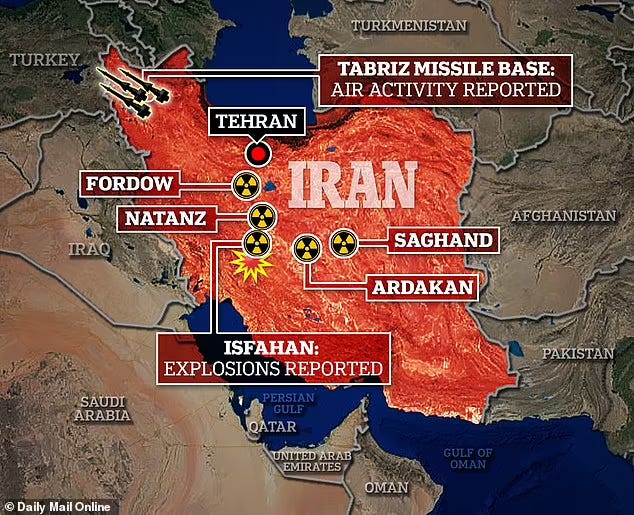
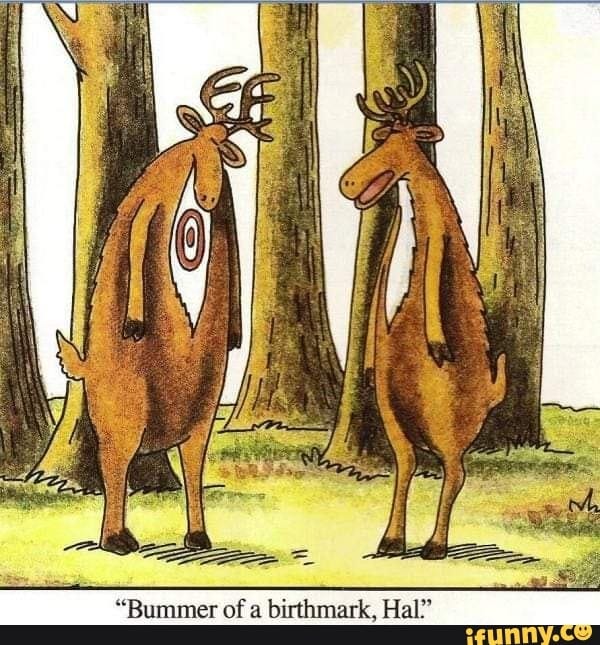
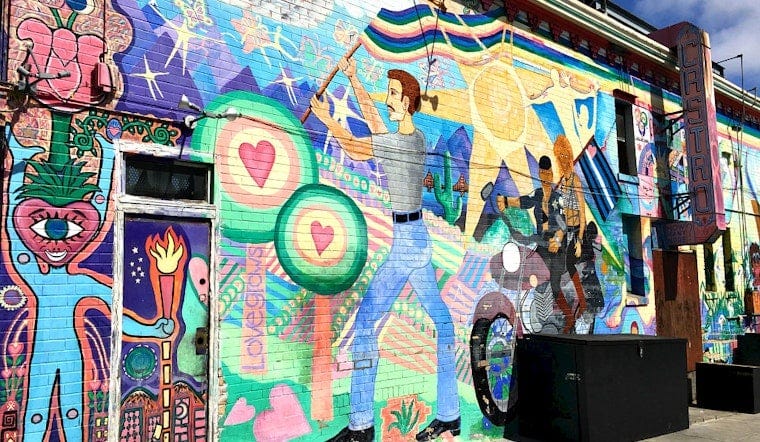
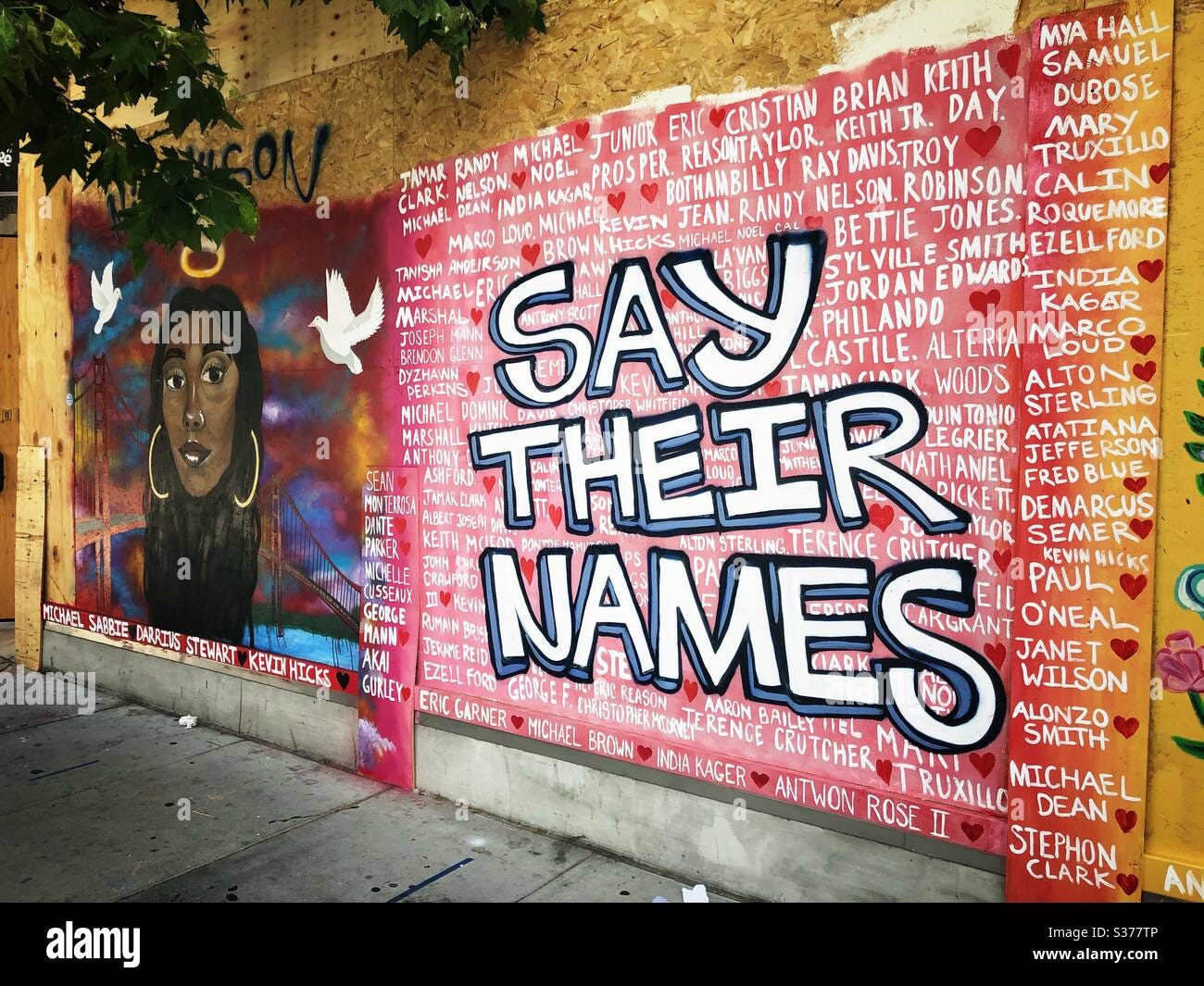
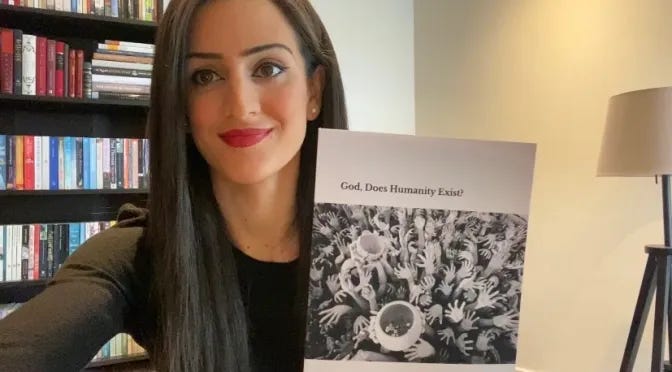
Thank you so much for this beautiful sermon. I hear peace in the silence.
It is a question we should all be asking ourselves . . . and then sharing the answer.